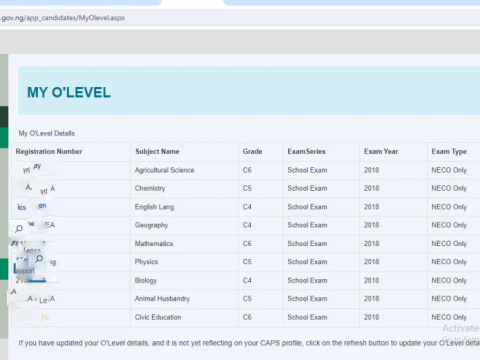
Scholarship essays are often the most important part of a scholarship application. They give scholarship committees a chance to understand who you are beyond your grades and achievements. A compelling scholarship essay can set you apart from hundreds or even thousands of applicants. Writing a winning essay requires strategy, clarity, and a personal touch that demonstrates why you deserve the scholarship.
In this guide, you will learn how to write a scholarship essay that captures attention, conveys your strengths, and increases your chances of approval.
Why a Scholarship Essay Matters
Scholarship committees want to fund students who are not only academically capable but also motivated, passionate, and aligned with the scholarship’s goals. A strong essay:
- Highlights your achievements and unique qualities
- Demonstrates your goals and vision for the future
- Provides insight into your personality, character, and experiences
- Shows your alignment with the scholarship’s mission
Without a compelling essay, even highly qualified candidates may be overlooked.
Types of Scholarship Essays
| Essay Type | Purpose | Tips |
|---|---|---|
| Personal Statement | Share your background, experiences, and motivations | Be authentic and focus on personal growth |
| Career Goals Essay | Explain your short-term and long-term professional goals | Connect your goals with the scholarship’s benefits |
| Achievement Essay | Highlight your academic, extracurricular, or leadership accomplishments | Provide specific examples and measurable outcomes |
| Community Service Essay | Demonstrate your contribution to society or volunteer work | Show impact and lessons learned |
| Research Proposal Essay | Outline a proposed research project (for graduate/PhD scholarships) | Clearly define objectives, methodology, and significance |
Knowing the type of essay required helps you tailor your content effectively.
Step-by-Step Guide to Writing a Winning Scholarship Essay
1. Understand the Prompt
Before writing, carefully read the essay prompt. Understand what the committee is asking for and any specific requirements such as word count, format, or themes. Misinterpreting the prompt is a common reason essays fail.
2. Research the Scholarship Provider
Learn about the organization or institution offering the scholarship. Understand their values, mission, and goals. Tailor your essay to show alignment with the scholarship’s objectives.
3. Create an Outline
A well-structured essay is easier to read and leaves a strong impression. An outline ensures logical flow:
- Introduction: Grab attention and introduce your main idea
- Body Paragraphs: Explain achievements, experiences, goals, or research ideas
- Conclusion: Summarize key points and reiterate why you deserve the scholarship
4. Start with a Strong Introduction
Your introduction should grab the reader’s attention and make them want to continue reading. Consider:
- A personal anecdote
- A quote that resonates with your goals
- A bold statement about your aspirations
5. Highlight Your Achievements and Experiences
Use the body paragraphs to showcase your:
- Academic achievements
- Extracurricular activities
- Leadership experiences
- Community service involvement
Be specific and provide examples rather than making general statements. For instance, instead of saying “I am a good leader,” describe a project you led and its impact.
6. Connect Your Goals with the Scholarship
Explain how the scholarship will help you achieve your academic and professional goals. Scholarship committees want to see that their investment will make a tangible difference in your life and potentially in society.
7. Be Authentic and Personal
Avoid clichés and generic statements. Share your personal journey, challenges, and growth. Authenticity resonates more than overused phrases.
8. Use Clear and Concise Language
Write in a clear, formal, and grammatically correct style. Avoid jargon or overly complex sentences. Make your essay easy to read and professional.
9. Edit, Revise, and Proofread
Editing is crucial. Check for:
- Spelling and grammar errors
- Repetition or unnecessary words
- Logical flow of ideas
- Word count compliance
Ask teachers, mentors, or past scholarship recipients to review your essay and provide feedback.
10. Submit Before the Deadline
Late submissions are automatically rejected. Track deadlines carefully and submit your essay early to avoid last-minute issues.
Table: Checklist for a Winning Scholarship Essay
| Task | Completed (✓/✗) | Notes |
|---|---|---|
| Read and understand the essay prompt | ||
| Research the scholarship provider | ||
| Create an outline | ||
| Write a strong introduction | ||
| Highlight achievements and experiences | ||
| Connect goals with the scholarship | ||
| Ensure authenticity and personal voice | ||
| Use clear and concise language | ||
| Edit, revise, and proofread | ||
| Submit before the deadline |
This checklist ensures that you cover all the essential steps for crafting a winning essay.
FAQs on Writing Scholarship Essays
1. How long should a scholarship essay be?
Most essays range from 500 to 1,000 words, depending on the scholarship’s requirements. Always follow the word count specified in the instructions.
2. Can I use the same essay for multiple scholarships?
You can adapt the same essay, but it must be customized for each scholarship to address specific prompts and align with the organization’s values.
3. How do I make my essay stand out?
- Share personal stories and experiences
- Be specific and provide examples with measurable impact
- Demonstrate alignment with the scholarship’s mission
- Show passion, authenticity, and motivation
4. What common mistakes should I avoid?
- Missing the essay prompt
- Using clichés or generic statements
- Poor grammar or spelling mistakes
- Failing to connect your goals with the scholarship
5. Should I include references or citations in my essay?
Typically, scholarship essays do not require references unless you are submitting a research proposal. Focus on your personal experiences and achievements.
ALSO READ: How to Find Scholarships for Undergraduate, Master’s, and PhD Programs
Conclusion
Writing a winning scholarship essay requires careful planning, authenticity, and strategic storytelling. By understanding the prompt, highlighting your achievements, connecting your goals with the scholarship, and editing thoroughly, you can create a compelling essay that stands out. Use this guide and checklist to craft essays that capture attention and increase your chances of approval in 2025. A strong scholarship essay not only opens doors to financial support but also showcases your potential to make a meaningful impact in your chosen field.





![FUTES-IYIN Cut Off Mark 2025/2026 is Out [All Courses] FUTES-IYIN Cut Off Mark 2025/2026 is Out [All Courses]](https://myeduplug.com/wp-content/uploads/2025/10/FUTES-IYIN-4.jpeg)
![FUADSI Cut Off Mark 2025/2026 is Out [All Courses] FUADSI Cut Off Mark 2025/2026 is Out [All Courses]](https://myeduplug.com/wp-content/uploads/2025/10/FUADSI-2.jpeg)
![ATBU Cut Off Mark 2025/2026 is Out [All Courses] ATBU Cut Off Mark 2025/2026 is Out [All Courses]](https://myeduplug.com/wp-content/uploads/2025/08/ATBU-1.png)
![UNIABUJA Cut Off Mark 2025/2026 is Out [All Courses] UNIABUJA Cut Off Mark 2025/2026](https://myeduplug.com/wp-content/uploads/2025/03/UNIABUJA-POST-UTME-Form-Is-Out-For.jpeg)








